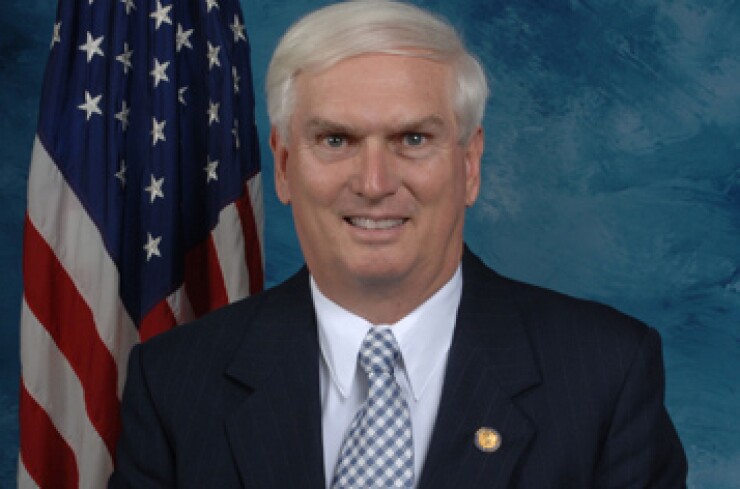
DALLAS — Funding water infrastructure projects with municipal bond proceeds is more efficient than private investments through public-private partnerships, an environmental advocate told the House Transportation and Infrastructure Committee's special P3 panel Tuesday.
The argument by Mitch Jones of Food &Water Watch in favor of revenue and general obligation bonds over private sector funding for water supply and treatment projects was disputed by other witnesses but supported by several committee members.
"Public-private partnerships are a more expensive form of financing than tax-exempt municipal bonds, and the risks to the private sector are limited," Jones said.
Water utilities will have to spend $384 billion on their systems through 2030 to provide safe drinking water as utilities struggle to keep up with aging infrastructure, population growth, and, in much of the western U.S., drought conditions, according to a 2013 U.S. Environmental Protection Agency report.
About 800 of the 52,000 water systems in the United States are operated under P3 agreements, witnesses told the panel.
Private financing can be twice as expensive as utility revenue or general obligation bonds because municipal debt can obtain lower interest rates than corporate bonds, Jones said.
Public utilities have access to low-cost borrowing, Jones said, but sometimes are reluctant to raise rates to support new tax-exempt debt.
Jones cited a report from Standard & Poor's that 97% of rated water utilities in 2012 were A credits or better.
"It's a funding problem, not a financing problem," he said. "Local governments don't want to raise water and sewer rates."
P3 panel chairman Rep. John Duncan Jr., R-Tenn., has co-sponsored legislation that would exempt private activity bonds issued for water and wastewater P3 projects from state volume caps.
Initial payments from private investors in a P3 project can be attractive to local governments struggling with slack tax revenues and a need to upgrade aging water utility infrastructure, Jones said.
"The upfront money and annual payments are a great way to move other debt off the city books, but it makes no sense to push it onto the water customer," he said.
Mayor Deborah Robertson of Rialto, Calif., said turning over operation of her city's water system to a private operator benefited ratepayers as well as taxpayers.
The P3 agreement called for the concessionaire to operate and collect revenues from the water for 30 years, she told the House panel.
The city paid off its outstanding water and waste water debt and fund $30 million in other city projects with its upfront payment, she said.
"We invested back into our community," Robertson said.
The private partner funded $40 million of water projects in the first five years of the agreement that would have taken the municipal utility at least 15 years to complete, Robertson said.
Rep. Michael Capuano, D-Mass., said P3s are attractive to water utilities because the onus for rate hikes that support system debt is put on the private sector operators.
"Let's be blunt," Capuano said. "This is a lack of political courage of politicians being unwilling to do what is necessary."
Higher interest rates and the private partner's profits are added to the customer's bill in a P3, Capuano said.
"None of us like raising taxes, but a water bill is a tax too," he said. "There's a price to be paid for lack of political will."
The water utility in Bayonne, N.J., had 12,000 customers and was highly leveraged when United Water took over its operations in 2012, said Dan Sugarman, vice president of the private water company.
A $150 million initial payment to the Bayonne water utility eliminated its outstanding debt and funded some immediate safety-related projects, he said. The company agreed also to make at least $107 million of system upgrades over the next four decades.





